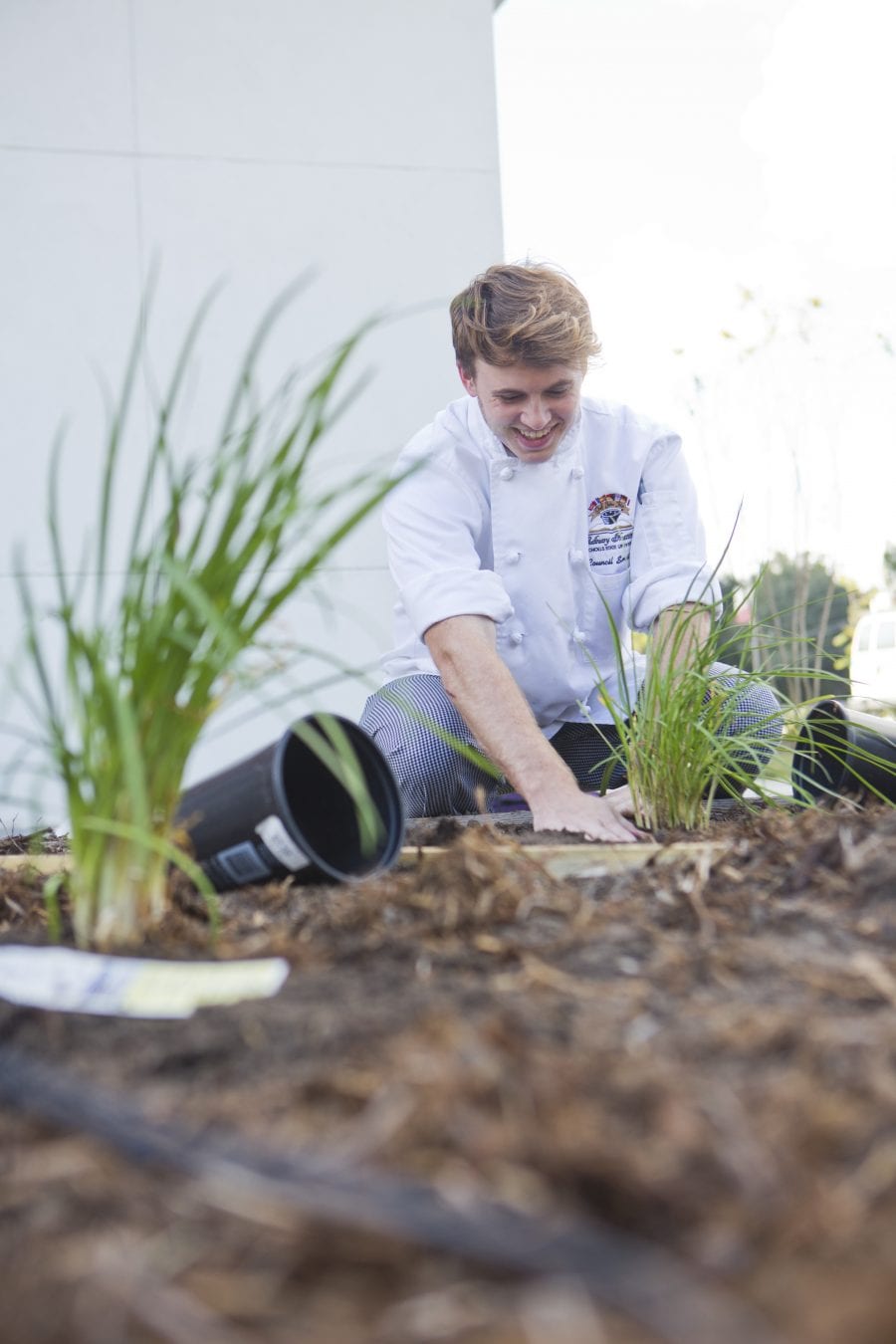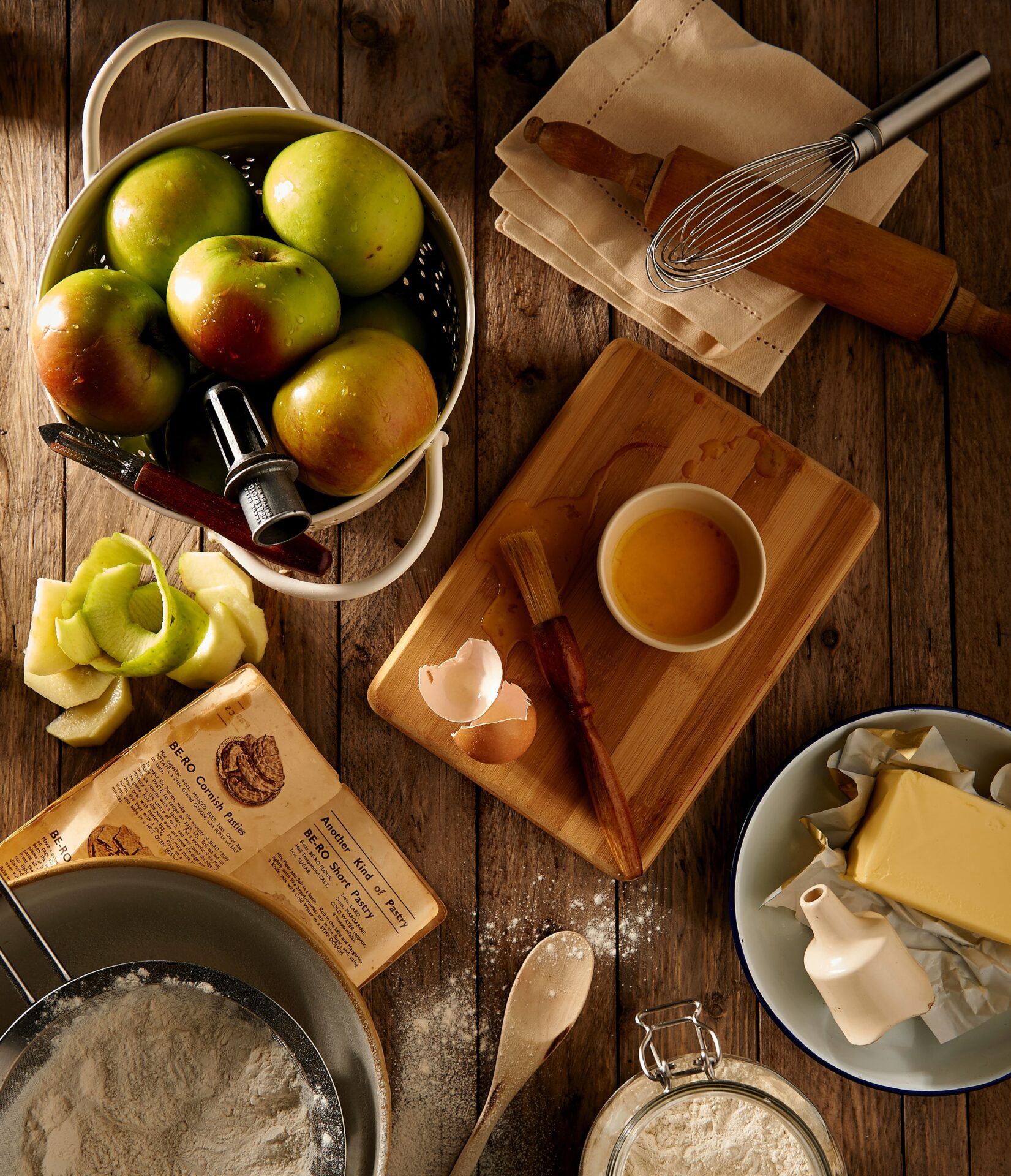Down in South Louisiana, we’re beyond blessed with an abundance of food, agriculture, land, animals, and more. One of the best ways to show gratitude for all that nature has to offer in Louisiana is by buying and cooking locally: as is the popular phrase today, eat food directly from “farm to table.”
Benny Cenac, CEO of Cenac Marine Services, has made the practice of farm to table a tasty priority in his household and his lifestyle. As the owner of Louisiana’s largest privately-owned refuge, Golden Ranch Farms, Benny Cenac has some of the richest and most expansive abundance of food right in his backyard, literally.
Louisiana’s mild winters mean there’s always something that can grow, no matter the season. In the winter, it’s best to begin planting vegetables like broccoli, cauliflower, celery and turnips. As the weather warms up in the spring, tomatoes, bell peppers, eggplant, squash, and cucumbers are ready for planting. In the sweltering Louisiana summer heat, brussels sprouts, cantaloupes, and watermelons get planted. To finish off the year in the fall and prepare for winter, beets, cabbage, and collards are ready for planting.
Combine all these delicious fruits and vegetables with an abundance of wildlife that can be deliciously prepared throughout the year, there’s simply no excuse not to use local ingredients in Louisiana kitchens. This is something which Benny Cenac – who is quite the chef himself – feels passionately about.
“You want some juicy duck? We’ve got it in our backyard,” Benny Cenac said. “Fresh raw oysters? We’ve got that in our backyard as well. Or a hearty salad for vegetarians? You can find all those ingredients right here too.”
For Benny Cenac, eating locally is a way to show tribute not only to the land and all its riches, but also to the tradition of Cajun culture. Some of the most beloved Cajun recipes and dishes were developed based on what was available locally, and the combination of these rich flavors and fresh foods turned out to create some delicious recipes.
Crawfish, boudin, duck, gumbo, fried oysters, you name it – it all originated in local Louisiana backyards, by people who were committed to appreciating their land for all it has to offer.
A family love for cooking also inspired Benny Cenac’s passion for food. Benny Cenac’s great-great grandfather was a pastry chef in France before moving to the United States. His great-great grandfather instilled a love for cooking in his family that was so strong it continued for generations. Benny Cenac fondly remembers being a young boy and watching his father and uncles whip up delicious recipes in the kitchen, with the Cajun flavors and smells drifting through the whole house. Benny Cenac knew that this was a tradition he wanted to continue with his own family someday.
Nicholls State University, Benny Cenac’s Alma Mater and Farm to Table in Practice
Fast forward to 2015, Benny Cenac learned that his alma mater, Nicholls State University, would not be able to continue to move forward with plans to build a new culinary arts building. Benny Cenac could not live with the fact that hundreds of young, bright-eyed students with a passion for cooking would not be able to learn and study in top of the line facilities. So, Benny Cenac donated to the university so they could continue with the project. The new facility, the Lanny D. Ledet Culinary Arts Building, is equipped with state-of-the-art kitchens, a study lounge, a restaurant and more.

Nicholls is also currently in the process of renovating its greenhouse, which has been out of use since 2014. The 1,700 square-foot building will provide research and education opportunities for various departments on campus, including the Chef John Folse Culinary Institute, where students will learn to grow produce and then use it in the kitchen.
The Nicholls greenhouse is an excellent example of “farm to table” in practice. Students at the culinary school learn about what crops are in season and how to best grow, harvest them, and then utilize them in their recipes in the kitchen.
“It makes me so proud to see Nicholls teaching their students how to use the goods of the land in their studies,” Benny Cenac said. “They’re going to be at an advantage when they graduate because they won’t just know how to cook with produce in the kitchen, but how to grow and cultivate it.”
In recent years, many restaurants have begun to realize the advantage of the farm to table practice. Louisiana restaurants are at an advantage due to the abundance of fresh food grown locally, but even larger restaurants and chains around the country have begun to adopt the farm to table practice in their kitchens.
“We’re lucky here in Louisiana,” Benny Cenac said. “But really, no matter where you live there is a way to make use of local food. It just takes a little bit of local knowledge, but it’s so worth it.”
share
trending content
-
Get To Know Roanoke, Virginia
-
Shrimp and Grits: A History
by Erin Byers Murray -
New Myrtle Beach Restaurants Making Waves
-
FINAL VOTING for Your Favorite Southern Culinary Town
-
New Restaurants in Arkansas
More From In the Field
-
Kohlrabi: Pretty Ugly
-
Meet the Newest James Beard Award Winners from the South | Listen
-
OKO Brings Filipino Soul to East Austin | Listen
-
The Local Palate’s Guide to Chattanooga | Video
-
Find Your Top Dry Bar in the South | Listen









